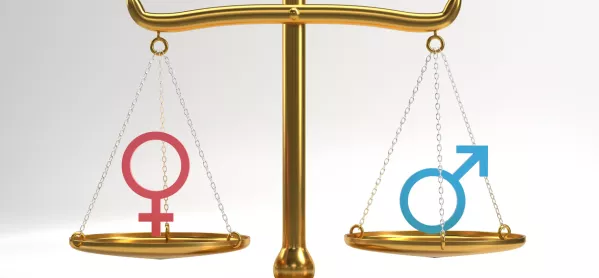The chairwoman of a new taskforce set up to end gender stereotyping in Scotland’s classrooms has said young women will play an “essential” part in its work.
Razannah Hussain, the co-chair of the Scottish government’s new Gender Equality in Education and Learning Taskforce, stressed that drawing on lived experience was the “best way to create a fairer Scotland”.
She spoke out ahead of the first meeting of the new body today, saying that its ambition was “to ensure that girls and young women have a gender-equal experience of education and learning”.
Background: Taskforce set up to deliver ‘gender-neutral education’
Related: ‘No real progress’ on tackling Stem gender stereotypes
Guidance: Treat sexist language like racism, teachers urged
News: Where are the best places in Scotland to be a girl?
Ms Hussain added that this was a “fundamental part of achieving a gender-equal Scotland, which will benefit everyone”.
She said: “It is essential that young women like me, and the others on the taskforce, have direct input in this way. Developing policy informed by lived experience is the best way to create a fairer Scotland.”
The group has been set up after the First Minister’s National Advisory Council on Women and Girls (NACWG) recommended a commission be established to tackle gender issues in education.
The council said the commission should be tasked with providing “bold and far-reaching recommendations” on how gender equality can be embedded in all aspects of learning from teacher training and school cultures to the curriculum.
Figures from the Scottish Qualifications Authority (SQA) showed that girls were more likely to study for Highers in subjects such as art and design, health and food technology and childcare development, while boys were more likely to opt for computing science, physics and graphic communication.
But these choices have been found to lead to gender segregation in jobs later in life.
While female pupils consistently outperform males at school and in gaining entry to college and university, more males stay in work and there is currently a gender pay gap of 15 per cent.
Over the next 12 months, the taskforce will develop a strategy to try to eliminate gender inequality in education and learning.
Education secretary John Swinney, who will co-chair the group, said: “Greater equality in education and learning gives everyone the same opportunity to succeed, and helps ensure a more robust and fair workforce while tackling the gender pay gap.
“We know young women and girls are significantly more likely to be disadvantaged by gender inequality while at school, leading to issues later in life, and the taskforce will help inform how we reduce the impact of this.”
He added: “We are making good progress with initiatives already underway to address gender imbalance in key areas, but there are always areas in which we can do more and do better to ensure that gender equality is embedded in education, so its benefits are felt by individuals in early years settings, at school, and in the world of work.”




